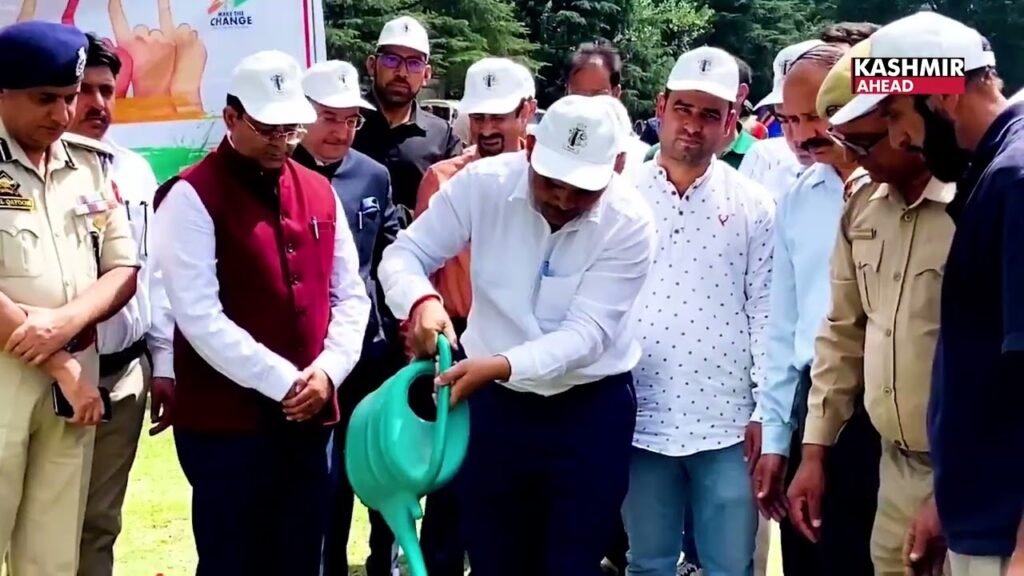In preparation for upcoming elections, the Chief Electoral Officer (CEO) of Jammu & Kashmir recently reviewed the election preparedness in District Kishtwar, ensuring that all systems were in place for a free, fair, and transparent electoral process. The CEO’s inspection of critical facilities, including Intermediate Strong Rooms and Polling Stations at Dachhan, reflects the administration’s commitment to maintaining the integrity of the elections, especially in remote and sensitive areas like Kishtwar. Additionally, the CEO’s participation in the Systematic Voter’s Education and Electoral Participation (SVEEP) campaign showcases a proactive approach in engaging and educating voters about the electoral process. Kishtwar, being a geographically challenging district, presents unique logistical and security hurdles during elections. The CEO’s inspection of Intermediate Strong Rooms, which are crucial for the safe storage of electronic voting machines (EVMs) and other sensitive materials, was a vital step in assessing the preparedness of election officials in handling these challenges. Strong rooms serve as a cornerstone for ensuring that votes cast are secure and untampered, reinforcing public confidence in the election process. By inspecting these facilities, the CEO aimed to ensure that all security protocols were in place, including the presence of surveillance systems, restricted access, and adequate staffing. The visit to polling stations at Dachhan, a remote area of Kishtwar, highlighted the administration’s dedication to making the election process accessible to all voters, no matter how isolated their location. The polling stations were reviewed for logistical arrangements such as accessibility, staffing, availability of necessary materials, and security measures to protect voters and election staff. Ensuring that these stations are fully functional and secure is essential for upholding the principles of democracy, where every eligible citizen has the right to vote without any hurdles. Beyond physical preparedness, voter awareness and participation are equally crucial for the success of elections. The CEO’s involvement in the SVEEP campaign in Kishtwar was a major step in promoting voter engagement. SVEEP campaigns are designed to educate voters about their rights and responsibilities, ensuring high voter turnout and an informed electorate. These campaigns often focus on educating first-time voters, marginalized communities, and women about the importance of voting and the processes involved. By participating in this campaign, the CEO demonstrated a holistic approach to election preparedness that not only focuses on the technical and security aspects but also emphasizes voter education and participation. In districts like Kishtwar, where political engagement might be hindered by geographical isolation or a lack of resources, the SVEEP campaign plays a vital role in bridging the gap between the electorate and the electoral process. The campaign in Kishtwar has the potential to motivate voters from rural and remote areas to exercise their franchise, thereby enhancing the democratic process. In conclusion, the CEO’s review of election preparedness in District Kishtwar, particularly the inspection of Intermediate Strong Rooms and Polling Stations in Dachhan, represents a comprehensive approach to ensuring the integrity of the electoral process. Coupled with active participation in the SVEEP campaign, the administration is working not only to ensure secure and efficient elections but also to foster a more informed and engaged electorate. This approach underscores the importance of both logistical readiness and voter participation, key pillars for a robust and healthy democracy.
CEO J&K reviews election preparedness in Kishtwar: Strengthening democracy at the grassroots
Keep Reading
Add A Comment
Services
- About
- Contact
- Video
- Newsletters
- Sponsored News
Subscribe to Updates
Get the latest creative news from FooBar about art, design and business.
© 2025 Kashmirahead. Designed by Creative Milestone..



